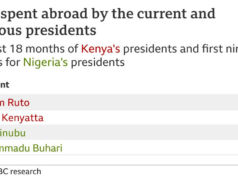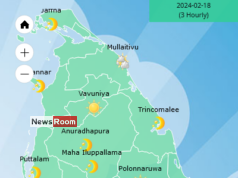Thuesday 22nd August, 2023
No sooner had the Indian government announced its decision to impose a 40% tax on onion exports to overcome a shortfall in the domestic supply than Sri Lankan traders jacked up onion prices exponentially. They would not have reacted so swiftly to a drop in onion prices in the international market. Agriculture Minister Mahinda Amaraweera is reported to have called for a report on the local onion production. He is worried that many farmers have stopped growing onions. What is expected of him and his ministry is a proactive approach; they should be asked why they have failed to ease the country’s dependence on onion imports.
Sri Lanka’s agricultural sector is characterised by gluts and scarcities. This alone is proof of the mismanagement of agriculture. In this day and age, cultivation of crops can be planned meticulously so that there will not occur unfortunate situations where everybody grows pumpkins and then destroys them in public, unable to sell them.
A possible shortage of onions due to export restrictions in India may be the least of Sri Lanka’s problems. UN Secretary General Antonio Guterres has warned of the spectre of a global food shortage, which the escalation of the Russia-Ukraine war is bound to worsen mostly owing to the expiration of the Black Sea grain deal. Minister Amaraweera has boasted that there are enough paddy stocks in the country despite the prevailing drought, and there will be no need for rice imports. But such claims are to be taken with a pinch of salt. Big-time rice millers will hoard paddy, creating an artificial scarcity of rice and sending its prices through the roof. Amaraweera has admitted that the state is without enough stocks of paddy to regulate the rice market, and the Millers’ Mafia will make the most of the situation. Odds are that rice will have to be imported.
It is high time the government took cognisance of the looming global food crisis, and acted without further delay to redouble the country’s efforts to increase the local food production. Mere exhortations to the public to engage in home gardening will not do. A comprehensive national action plan is called for.
Rice production is notoriously prone to environmental stresses. Agricultural experts have emphasised the need to use modern technology to make the paddy cultivation less water-intensive, and prevent late cultivation, which is a strain on irrigation reservoirs. We remember having reported about five years ago that the International Rice Research Institute was developing climate-smart rice varieties capable of withstanding the adverse environmental conditions caused by climate change, such as drought, floods, extreme temperatures and soil issues. One can only hope that the Agriculture Ministry, the many institutions under its purview and the experts attached to them, closely follow these developments and factor them in when they make decisions and formulate policies.
Post-harvest losses are as high as 40% in Sri Lanka, according to the Ministry of Agriculture. Some strategies have been adopted over the years to minimise this colossal waste, but they have not helped break the back of the problem. Truckloads of locally-produced onions and other perishables decay during the harvesting season for want of storage facilities. If the post-harvest waste could be brought down significantly, there will be no need for opening up more land for agriculture, and it will be possible to curtail expenditure on agricultural inputs, save a substantial amount of forex and keep production costs at sustainable levels; above all, the encroachment by government supporters of peripheral forests and other such ecologically-sensitive areas, on the pretext of helping increase national food production, could be prevented.
Scientists have warned of an impending water crisis mostly due to the onset of El Nino. It defies comprehension why a country blessed with abundant sunshine and an ocean around it does not have desalination as part of its strategy to overcome drinking water scarcity at least during the dry season. A combination of desalination, water conservation, rainwater harvesting, improved agricultural practices, and efficient water management might offer a more comprehensive solution to the drinking water problem. It may be possible to utilise more water in irrigation reservoirs for agriculture instead of producing electricity if wind and solar power generation could be increased in the dry zone.
The need for a multi-disciplinary task force consisting of real experts drawn from various sectors, and other stakeholders to work out a national strategy and prepare the country to overcome food and water issues cannot be overstated. There is much more the government and its ministers ought to do than giving press conferences, where they belabour the obvious.








